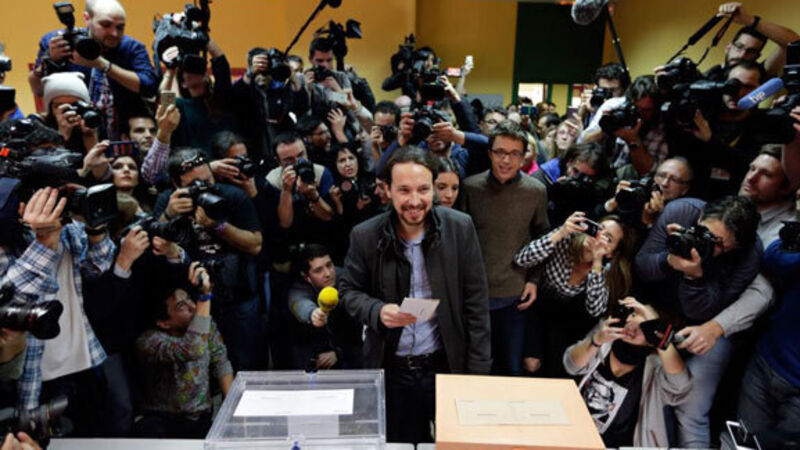Newcomers threaten two-party dominance in Spanish election

The exit poll for the state-owned RTVE channel gave the Popular Party 26.8% of the vote. The main opposition Socialist Party, with 20.5%, was running neck-and-neck for second place with new far-left party Podemos (21.7%), the poll said.
It put support for the new business-friendly Ciudadanos party far behind the others at 15.2%.











